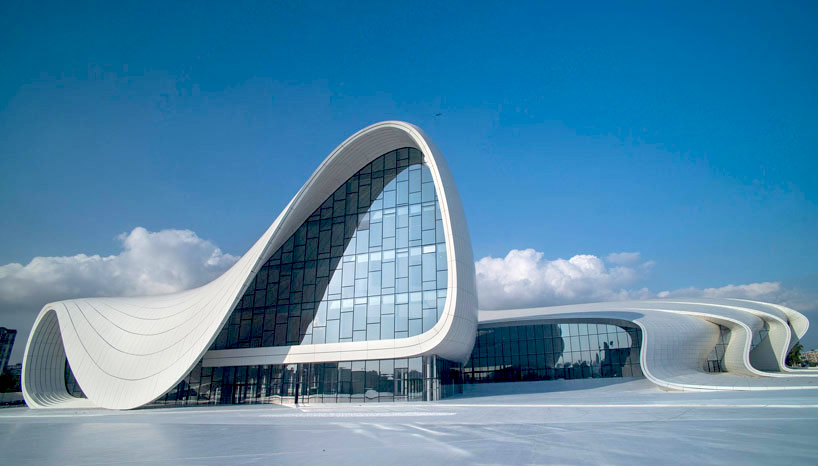
 Dame Zaha is an Iraqi–British architect. In 2004 she became the first woman recipient of the Pritzker Architecture Prize. She received the Stirling Prize in 2010 and 2011. In 2012 she was made a dame. In 2014 the Heydar Aliyev Cultural Centre, designed by her, won the Design Museum Design of the Year Award, making her the first woman to win the top prize in that competition.In 2015 she became the first woman to be awarded the RIBA Gold Medal in her own right.
Dame Zaha is an Iraqi–British architect. In 2004 she became the first woman recipient of the Pritzker Architecture Prize. She received the Stirling Prize in 2010 and 2011. In 2012 she was made a dame. In 2014 the Heydar Aliyev Cultural Centre, designed by her, won the Design Museum Design of the Year Award, making her the first woman to win the top prize in that competition.In 2015 she became the first woman to be awarded the RIBA Gold Medal in her own right.
Dame Zaha , who also designed the London Aquatics Center, one of the main venues of the summer Olympics and Paralympics in 2012, was named a dame in the Queen’s Birthday Honors list for services to architecture in the same year.
Ten years prior to her damehood, she was awarded a CBE.
Recently, the Royal Institute Of British Architects ( Riba ) announced Dame Zaha as the recipient of its prestigious Royal Gold Medal , approved personally by The Queen.
She is the first woman to be awarded the honour in her own right.
Speaking to presenter Kirsty Young on BBC Radio 4’s Desert Island Discs, the 65-year-old said: “I don’t really feel I’m part of the establishment. I am not outside, I’m on the kind of edge, I’m dangling there. I quite like it.”
“I just do what I do and that’s it.”
Dame Zaha grew up in Baghdad . She displayed her individualism at an early age by designing her bedroom when she was nine.
“My parents allowed me to be very independent at a very young age and develop my own taste and my own way of working. I am very grateful to them,” she said.
Her father was politician Mohammed Hadid . Dame Zaha’s mother, Wajeeha Sabonji, was a housewife.
Born in Baghdad to a Sunni Muslim family, Dame Zaha was taught by Catholic nuns.
“I didn’t even know I was Muslim until I was six,” she said. “Honestly, there was absolutely no difference – Sunni, Shi’ite – they were all the same. That’s the Iraq I loved and I know.”
The list of buildings she has designed in various countries include the Maxxi Museum in Italy , the Guangzhou Opera House in China and the Heydar Aliyev Centre in Azerbaijan .
The multi award-winner told Young it is “very important” to “contribute culturally in a positive way” to countries that have commissioned her “because there will be no change anywhere if there isn’t that element”.